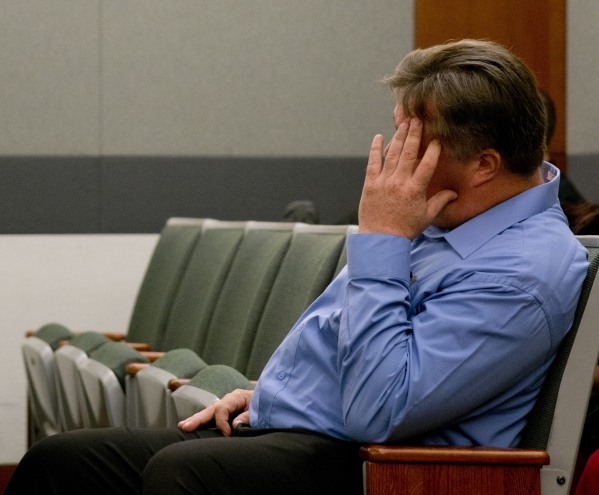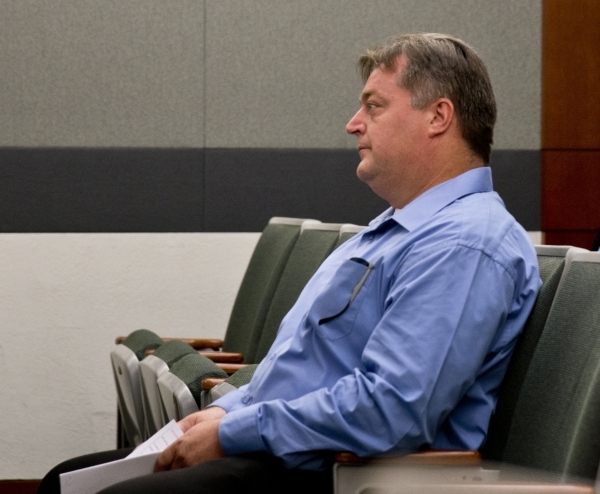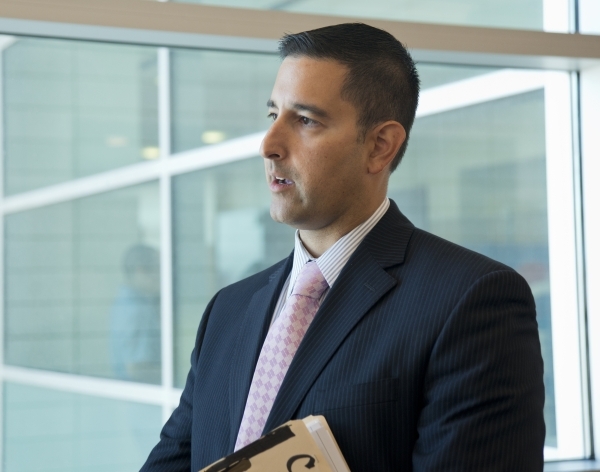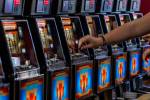Former Bellagio craps dealer pleads guilty in scam against casino
Former Bellagio craps dealer James R. Cooper Jr. pleaded guilty Tuesday to one count of felony theft for his role in what prosecutors described as a two-year, $1 million craps scheme.
Last year, authorities noticed a series of winning wagers they said defied 452-billion-to-1 odds.
Between August 2012 and July 2014, Cooper and fellow dealer Mark M. Branco and two friends — Anthony G. Granito and Jeffrey D. Martin — scammed the Bellagio by making phantom hop bets, Cooper told District Judge Valerie Adair. A hop bet is a one-time, high-risk verbal proposition in which a player wagers that a specific number will be rolled next.
Cooper testified before a Clark County grand jury in September and laid out the scam. He said Branco floated the idea while the two were walking through the casino. They had briefly tried it on a much smaller scale nearly 20 years prior at the Golden Nugget.
Cooper and Branco would have to be working the same table, he said. As a shooter tossed the dice, Granito or Martin would mumble something that sounded like a hop bet and one of the dealers would pay out as if they had correctly wagered on whatever fell.
At the time, the felt on the craps table at Bellagio had no designated spot for such bets.
Casinos regularly try to rotate dealers so they don't often work together and "there isn't a huge opportunity for collusion," MGM fraud examiner Sharon Tibbits testified.
Odds are that over two years the crew would have lost $712,029, but they won a total of $1,086,400, according to an MGM statistician. Granito had racked up more than $33,000 in comps and Martin had more than $12,000 that could have been used on shows, steak dinners, free rooms or a day at a spa. But they cashed in on very little.
"It's our belief that ... by redeeming comps they're afraid that they get on the radar," Tibbits said.
After authorities learned of the scam, the casino set up Branco and Cooper to see if they would pay late-placed hop bets to anyone who showed up at their table.
When an undercover player tried to throw down bets after the dice were tossed, "they told her 'no bet' and waved her off," Tibbits said. "They corrected her as they were supposed to. On every case."
By then, authorities believe, Branco and Cooper already suspected that the casino figured out their scam.
Branco, Granito and Martin are still awaiting trial, and Cooper's sentence could hinge on his testimony against the co-defendants.
Cooper's attorney, Amy Chelini, said her client was remorseful in part because friends at the casino — who were plied with alcohol and tips as a distraction from the scam — lost their jobs.
"He got caught doing something stupid," Chelini said. "He's owning it, and it's cost him dearly."
Cooper now works as a carpet cleaner and a janitor.
Branco's lawyer, Andrew Leavitt, said authorities counted every cash out as a cheat. But the group also participated in legitimate play and sometimes won. Branco even underpaid players on occasion, the attorney said.
But prosecutor J.P. Raman said that was part of the plan.
"It was built into the strategy," Raman said. "There would be losing, so it wasn't all wins and it would raise a red flag."
When Branco first suggested trying the phony hop bets at Bellagio, Cooper was down on his luck, he said. He owned the IRS $60,000, and his real estate investments had failed. He was struggling to provide for his family on a $50,000 salary at the casino, he told the grand jury.
Cooper said he got a third of the money when Granito or Martin played. His biggest cut was about $27,000 in one session, and he pulled down about $200,000 over two years.
Contact David Ferrara at dferrara@reviewjournal.com or 702-380-1039. Find him on Twitter: @randompoker

































